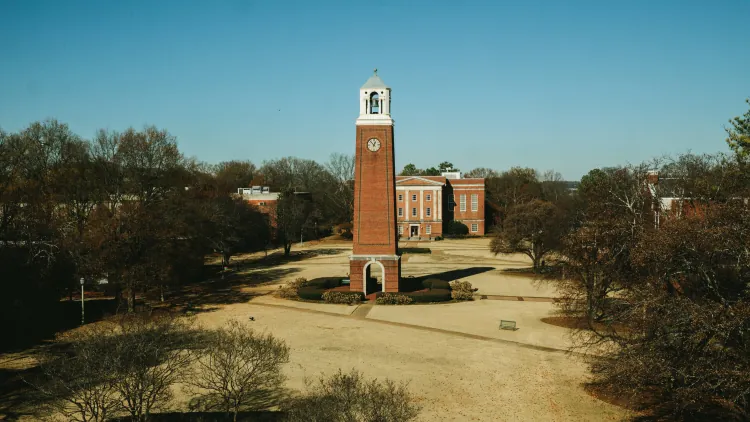End of an Era: Birmingham-Southern College Closes After 170 Years
reasons behind the closure of Birmingham-Southern College and its impact on the community and education in Alabama

-
Introduction
- Overview of Birmingham-Southern College's announcement to close
- Brief history of the college
-
The Path to Closure
- Financial struggles faced by the college
- The failed bid for a taxpayer-backed loan
-
Impact on the Community
- Reactions from officials and alumni
- The broader impact on Birmingham and Alabama
-
Looking at the Bigger Picture
- The challenges facing small private colleges in the US
- Competition with larger institutions
-
Conclusion
- Reflecting on the legacy of Birmingham-Southern College
- The future of higher education in the region
Birmingham-Southern College Closure: A Deep Dive into Its Impact and Legacy
Introduction
Birmingham-Southern College, a distinguished private liberal arts institution in Alabama, has announced its closure at the end of May, marking the end of a 168-year legacy. This decision, made unanimously by the College Board of Trustees, comes after financial adversities and unsuccessful attempts to secure state aid. The institution's closure not only signifies a significant loss to its students, employees, and alumni but also poses a substantial impact on the Birmingham area and the state of Alabama.
The Path to Closure
The college's journey to this point has been marred by financial struggles, exacerbated by the 2009 financial crash which led to a $25 million loss in its endowment value. Further woes included an audit revealing significant budgeting errors and a Moody’s Investors Service downgrade. Despite efforts to remain operational, including a state-created loan program for distressed colleges, Birmingham-Southern's loan application was rejected. Subsequent legislative efforts to secure funding also failed to gain the necessary support.
Impact on the Community
The closure of Birmingham-Southern College is a blow not just to its direct affiliates but to the wider Birmingham community and Alabama. The Rev. Keith D. Thompson, chairman of the Board of Trustees, and U.S. Rep. Terri Sewell, among others, have expressed deep disappointment over the loss of an institution that has been a cornerstone for higher education and community development. The potential effects on the surrounding neighborhoods, should the 192-acre campus be shuttered, are of particular concern.
Looking at the Bigger Picture
This closure reflects a larger trend among small private colleges across the United States, which are struggling against declining student numbers and competition from larger, wealthier universities. The challenges Birmingham-Southern faced are symptomatic of broader issues within the higher education sector, including financial sustainability and the value proposition of private liberal arts education.
Conclusion
The closure of Birmingham-Southern College is a poignant reminder of the fragility of institutions we often assume to be permanent fixtures. As we reflect on its considerable contributions to education in Alabama and beyond, it's crucial to consider what the future holds for similar institutions and how the landscape of higher education may evolve in response to these challenges. The legacy of Birmingham-Southern will live on through its alumni and the broader impact it has had on the community, underscoring the significant role such institutions play in our society.
For further insights into the challenges facing higher education and the impact of college closures, explore more articles on Kiksee Magazine.
What's Your Reaction?






















